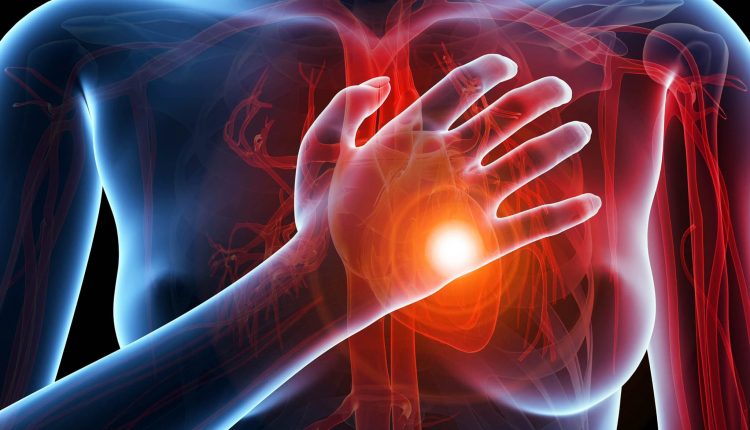
American Heart Association: "Myocarditis from COVID-19 booster rare, but risk highest among teen boys, young men"
The risk of developing myocarditis – an inflammation of the heart muscle – following a booster dose of the Pfizer COVID-19 vaccine is low, according to new research from Israel
COVID-19: When vaccine-related myocarditis does occur, cases are typically mild, according to the study published Tuesday in the American Heart Association journal Circulation
It found the risk was highest among teen boys and young men.
“It is important to understand the connections between this rare heart condition and COVID-19 vaccines so we can monitor the prevalence of myocarditis and pay extra attention to those who are most at risk,” lead study author Dr. Dror Mevorach said in a news release.
He is a professor of medicine and head of the Immunology-Rheumatology Institution at Hadassah Ein Karem Medical Center in Jerusalem and chairman of the Israeli Ministry of Health Committee for Identifying Myocarditis as an Adverse Effect of mRNA Vaccines.
Myocarditis is an inflammation of the middle layer of the wall of the heart muscle, called the myocardium
It can be triggered by a viral infection and can weaken the heart muscle and the heart’s electrical system, which makes it harder for the heart to beat normally.
The condition can resolve on its own or with treatment, but also can cause lasting damage to the heart.
Previous research from public health agencies around the world, including the U.S. Centers for Disease Control and Prevention, has shown a potential increased risk of myocarditis following an mRNA COVID-19 vaccine.
COVID-19 and myocarditis: a recent study published by the Ministry of Health in Israel found a low incidence of myocarditis after a first and second dose of Pfizer’s vaccine
But because risk was highest among young men and teen boys who had a second dose of the vaccine, researchers were concerned about the potential effect a third dose, the booster dose.
In the new study, researchers analyzed health data for people who developed myocarditis following a third dose of the Pfizer vaccine, which was given to nearly 4 million Israeli adults between July 31 and Nov. 5, 2021.
Within the first 30 days of receiving the booster, there were 35 reported cases of myocarditis.
An additional 56 cases were reported after 30 days.
Of those, 28 cases were confirmed or considered probable, and 18 of those occurred within a week of the booster being given.
All 28 cases were considered mild. Patients recovered after spending an average of three to four days in the hospital.
Across all ages, the risk of developing vaccine-related myocarditis was nine times higher for men than women.
Males ages 16-19 faced the highest risk, with young men ages 20-24 having the second-highest risk.
The risk of developing myocarditis among males ages 16-19 after a third dose was about 1 in 15,000.
Other research shows COVID-19 infection poses a higher risk for myocarditis than vaccines.
The risk for developing myocarditis was lower following a booster than following a second dose of the vaccine, the researchers reported.
Mevorach suggested two possible reasons for this.
As a medical precaution, people who developed myocarditis after the second COVID-19 vaccine dose did not receive a third dose.
Also, timing may be a factor.
The first and second doses are administered approximately three weeks apart, but the time between a second dose and a booster was about 20 to 24 weeks.
Researchers don’t know why young men and teenage boys are at higher risk for myocarditis from a COVID-19 vaccine and believe further investigation is needed.
Read Also:
Emergency Live Even More…Live: Download The New Free App Of Your Newspaper For IOS And Android
Myocarditis: Causes, Symptoms, Diagnosis And Treatment
Lancet: ‘Anti-Inflammatories Reduce Covid Admissions By 90%’
Inflammations Of The Heart: Myocarditis, Infective Endocarditis And Pericarditis
Extrasystole: From Diagnosis To Therapy
The Quick And Dirty Guide To Cor Pulmonale
COVID-19, A Watershed Moment For Laboratory Medicine In Africa
Bolstering Monkeypox Laboratory Testing In Africa
Covid, UK Green Light For Modern Bivalent Vaccine That Also Counteracts Omicron
Covid, How To Recognise The Symptoms Of Centaurus? Beware Of Stuffy Nose And Dry Cough
US Study: Omicron Positives Emit Five Times More Virus
Covids, Variants And Sub-Variants: What Is A Bivalent Vaccine?
Covid-19, Cuban Drug Nimotuzumab Granted Health Registration In Indonesia
Ectopia Cordis: Types, Classification, Causes, Associated Malformations, Prognosis
Ventricular Aneurysm: How To Recognise It?
Bacterial Endocarditis: Prophylaxis In Children And Adults
Erectile Dysfunction And Cardiovascular Problems: What Is The Link?
Precordial Chest Punch: Meaning, When To Do It, Guidelines
Surgery Of Myocardial Infarction Complications And Patient Follow-Up


